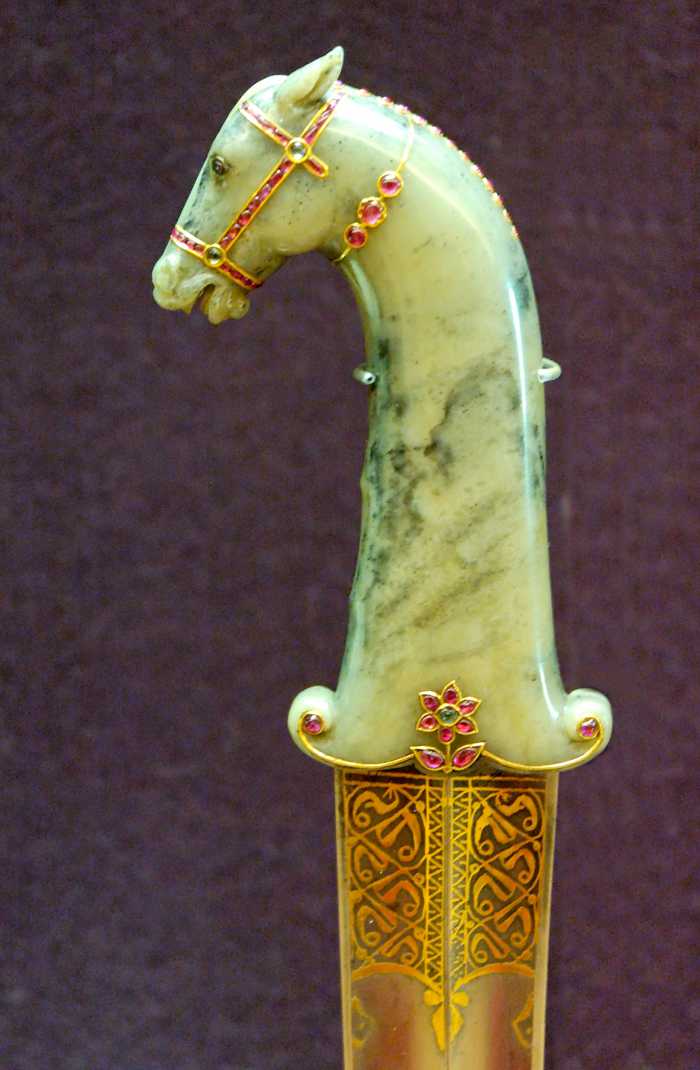FWP:
SETS == PARALLELISM;
WORDPLAY
JIGAR: {2,1}
SWORD: {1,3}
This is the second and final verse of a two-verse verse-set; moreover, some commentators reverse the order of this verse and the preceding one; see {186,4} for discussion of all such matters.
For more about dashnah and ḳhanjar , and verses that refer to them, see {59,6}.
The commentators read this verse as a further description of the sad situation of the lover in {186,4} who would remain all his life vainly longing for a quarrelsome, dispute-seeking beloved. This is certainly very tempting, for otherwise it's hard to see how to read those parallel nah ho constructions. The future subjunctive is so ambiguous-- 'might not', 'would not'-- and the context impossible to provide, leaving us no tone of voice. This is what might be called an 'extreme verse-set verse'-- one that almost can't be read except as part of a verse-set. Very few verses in verse-sets are so radically dependent on context for their very intelligibility.
There's of course the nice wordplay of body parts ( muñh
, jigar , gulū ) and of conversation ( muñh , bāt
, pūchhnā , gulū ). But this hardly suffices as a frame for the whole
verse. Indeed, this wordplay too works much more cleverly if we interpret
the verse in the light of {186,4), because then a wistful and vain longing
for 'conversation' even with weapons (poniard, dagger) is explained by the
lover's adoration of an aggressive, conflict-seeking beloved.

Nazm:
By dagger and poni ard are meant the airs and graces and conflict-seeking and cruelty of the beloved. (209)
== Nazm page 209